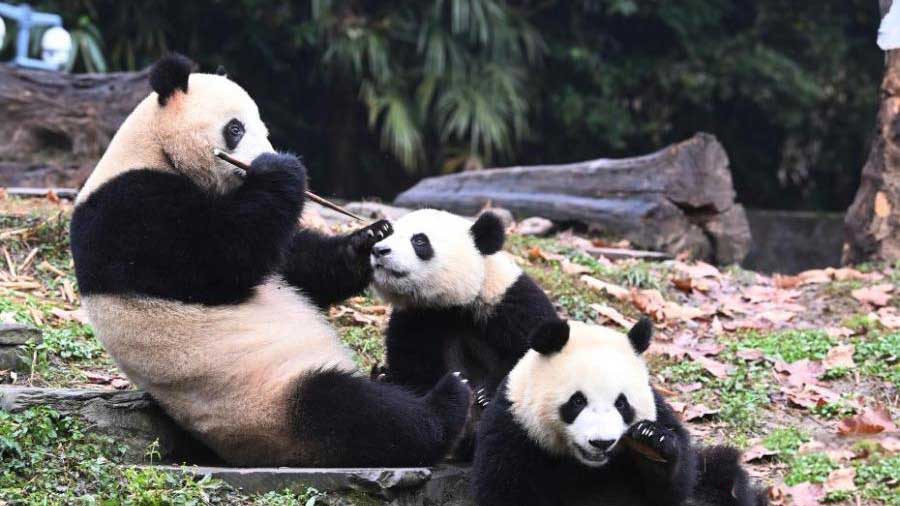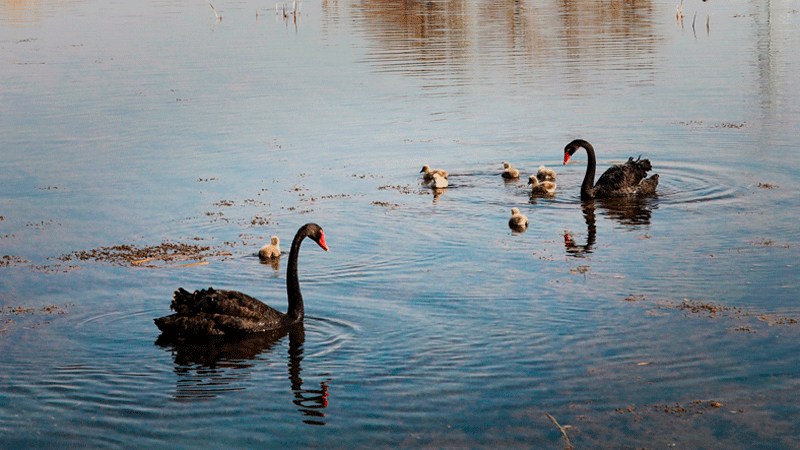Michael Sheringham: A generational family business, a century-long cultural connection
There are very few places in London where one can learn a great deal about Chinese history, and Great Russell Street is one of these places. Of the thousands of visitors who enter the British Museum through its south entrance, few pay much attention to the smaller shops across the street. However, behind the dark wooden door of 41 Great Russell Street is Arthur Probsthain, one of the oldest publishers and dealers specializing in Chinese and African books. In business since 1903, the bookstore is named after its founder and granduncle of Michael Sheringham, an old friend of China, an enthusiast of Chinese literature and a member of a family whose fate has been intertwined with the country for over a century.
Born in the mid-1940s and educated at Durham and Cambridge University, Sheringham visited China at the dawn of the diplomatic relationship between China and the UK in 1971. He then went back to China and taught at both Peking University and Shenzhen University, where he married Beijing native Susu, the first international marriage in the history of the Shenzhen Special Economic Zone. Upon Sheringham’s return to the UK, he continued to teach Chinese language and history at various institutions while running the bookstore with his family. The business is now in the hands of Sheringham’s nephews, fourth generation descendants of Arthur Probsthain himself.
A novelty of study
People’s Daily Online: Both of your parents were experts in Chinese Studies and ran Arthur Probsthain’s, a bookstore specializing in Chinese and African books. How has this family background influenced your upbringing?
Sheringham: I think when I was certainly still at school, China was some influence, probably through my father and the bookshop – Arthur Probsthain – which he ran in Bloomsbury in London. And I do remember in school, for instance, I wrote an essay on the geography of China. And that's about all I knew of China because I had to do some homework on it. So, I think I used one or two books from the bookshop. And of course, apart from the geography, it gave me some background information. So that was school. Then I decided to study Chinese at university, and that again, would be the influence of the bookshop, and my parents’ encouragement. Therefore, I went to Durham University to study Chinese. It was quite a novelty at that time in the sixties.
People’s Daily Online: Back in the 1960s, how was Chinese Studies taught at UK universities? Which parts of the programme were you most attracted to?
Sheringham: Chinese studies was not as widespread, of course, as it became later. So that's where I had my basic education in Chinese, really starting with guwen, old Chinese, old Chinese writing, old Chinese characters, and the old classics like Lunyu by Confucius, as you would as a scholar in China for centuries. So, we really did have a pretty traditional kind of Chinese education in Durham. It was a three-year course and very little modern Chinese, but I became more and more interested in the modern from the 19th century history to some extent, the culture.
After I graduated from Durham, I had the opportunity to study in Cambridge for a year and it gave me a chance to learn more modern Chinese. Spoken Chinese was not at all part of the curriculum in Durham, and only a few universities did teach it. When I got to Cambridge in 1968, they did have spoken Chinese as part of the course. I did veer towards more interest in the modern Chinese, and I took that with me to Cambridge, but it didn't work out that way for me because it was not part of the course. I was there full of enthusiasm taking some modern Chinese stories with me to, but I had to put that aside, except for one lecturer, who was my delegated individual tutor at King's College, Martin Bernal.
He had already studied at Peking University, and then he came back. He must have been one of the very few, for I never heard of any other scholars or students going to study there at that period. He was very encouraging. I said I'm trying to learn and read modern Chinese literature and modern stories, both to improve my modern Chinese and for my interest. He just let me do that and guided me along. I think Bing Xin was the writer which we chose for me to read with him and he would probably read it aloud. Then when I was writing this M.A. dissertation, I chose the subject, which is Lu Xun’s Views of the Social Function of Literature, a Case Study in Modern Chinese Literary Theory, which I wrote around in 1969 to 1972, and I really enjoyed that. I could really get to know more about the writing and particularly Lu Xun during the May 4th – Wu Si Yun Dong - period, and something of the social and historical background.

Michael Sheringham
A life of teaching
People’s Daily Online: Did you have an opportunity to visit China during your studies? On what occasion did that happen?
Sheringham: I joined a group visiting China through SACU, the Society of Anglo-Chinese Understanding, which was quite a pioneering visit, of course, in April 1971. And my sister Lesley was on that tour, too. I should just add that my mother had been on the previous tour, which was really the pioneering tour in 1970, the first SACU tour. I was there enjoying this first visit to China and I was very excited and very enlightened. I began to ask whether it would be possible to go back to teach.
And then when I got back to the UK, I was teaching those students in the commercial office of the Chinese Embassy and I made friends with them. They passed on the word that I was eager to come back to China to teach. And one person I haven't mentioned yet is Dr Joseph Needham. I think he was the president of SACU at the time, but he was also, of course, based as an academic at Gonville and Caius College in Cambridge. He was a formative influence who was encouraging and maybe instrumental in my going to China, to Beijing, Beida (Peking University) to teach in 1972.
People’s Daily Online: What was it like to teach in Beijing as a foreigner in the 1970s? Could you please share some details of your life there?
Sheringham: First of all, I lived at this very special place, which is very different in a Chinese context. You Yi Bin Guan, the Friendship Hotel in Beijing. That's a kind of historic place where foreigners were teaching or translating or polishing in the translation in the magazines and so on, where they were settled, generations before and generations afterwards.
But there were also long-term foreign dwellers in Beijing who had been there since liberation. I could learn more from them, and they became good friends of mine, such as Pat Adler and Solomon Adler. These were real old friends of China who lived there and were held in quite high esteem. I visited them nearly every week, therefore I tended to branch out. Of course, you know, we also went out for various purposes. I worked every day; I would go to Beida. Also the outings, we would go into the centre of Beijing, Dashilar or the You Yi Shang Dian to go shopping.
People’s Daily Online: You and your wife got married in China and you had a daughter. What was it like to have an international family then?
Sheringham: Before we were married, Susu graduated in 1973 from Beida and then she told me she was going to Shenzhen University. So we parted ways. I came back to London, but I said, I'll try and get to Shenzhen. When I was in Beijing in about 1980 or 1985, I taught a summer course at Tsinghua University that year through one of the teachers who was responsible for me all those years in Beida, and she arranged for me and a few other foreigners to teach in Shenzhen.
Personally, there was a reason because I'd linked up again with Susu, whom I hadn't met for really for so many years. We had just been in touch - corresponding – and it was impossible really to meet. I couldn't believe by the mid-1980s that it was still so difficult and unusual for a foreigner to marry a Chinese. My wife Susu and her family thought it would be easier in Shenzhen. But it's probably typical and understandable at that time because when we just went into the registration office to get married, the registrar nearly fell off his seat with a very polite huanying (welcome). And he said, ‘I'm sorry. I've never married a foreigner with a native Chinese, so I didn't know what to do’. I had to apply to the Guangzhou authorities because this is really the first unusual situation. I had medical tests that I had to take. There were more problems for me because I was a foreigner.
After we were married, our daughter Lily was born in 1986. She was actually born in Beijing. After we finished the teaching and Susu’s work in Shenzhen, we went up to Beijing and Susu gave birth to Lily in the major hospital in Wangfujing.

Michael Sheringham
A family of connection
People’s Daily Online: What did you do upon your return to the UK? How were you involved in UK-China cultural exchanges afterwards?
Sheringham: When I came back from China, I taught at the City University and City Literary Institute in Holborn. Westminster University was the polytechnic at that time moved to Euston. I taught Chinese language, modern Chinese history and various other courses. I also taught here in Haslemere by chance, in the adult education scheme that they had around here. I even had 50 people coming to the class at the museum.
People’s Daily Online: Next year marks the 120th anniversary of Arthur Probsthain’s. What role does this special connection with China play in your family?
Sheringham: It was a generational family business. We were all orientated towards China. My parents both worked really to the end of their lives. My sister, Lesley, went to University of Westminster which was then the Polytechnic of Central London and took Chinese classes. She also worked next to my mother after she left school. Her sons – Tim and Chris – are now running the bookstore and both half-Chinese by their father who is actually a Huaqiao (overseas Chinese) from Hong Kong. They went to Hong Kong to see the relatives there, and they did at least one tour of the mainland together with their parents. They certainly experience that sort of connection.
Lily feels much closer to China. I mean she was born and spent three years there and, you know, had a close family connection with Susu’s mother, that's Lily's grandma. So, she felt very strong connection and affection. And this very emotional link for Lily was there with Beijing and after studying Law at King's College London, she had a gap year teaching at Renmin University. And she really enjoyed it. She also went there to do a little bit of training experience in Hong Kong. I think in Lily's mind, she is always willing to go back to Beijing.
So, anybody growing up in our family would be fatally attracted. Or, let's say they had an atmosphere around them. It was international, very international.
Photos
Related Stories
- Interview: London's Royal Albert Hall hopes to attract more Chinese artists, spectators: CEO
- Alan Macfarlane, social anthropologist at University of Cambridge: Playing a concerto of civilisations
- China hopes Britain will nurture bilateral cooperation: FM spokesperson
- Mark Pollard: An obsession with China that isn’t going away
- Britain should respect legitimate rights, interests of Chinese companies: spokesperson
- Ronnie O'Sullivan: Building a bridge of snooker between China and UK
- Ambassador calls on Chinese, British business communities to further promote cooperation
- Angela Smith: Strengthening Sino-British friendship through football
- Diplomat highlights opportunities for Sino-UK ties
- British young man aspires to become envoy of UK-China friendship
Copyright © 2022 People's Daily Online. All Rights Reserved.









